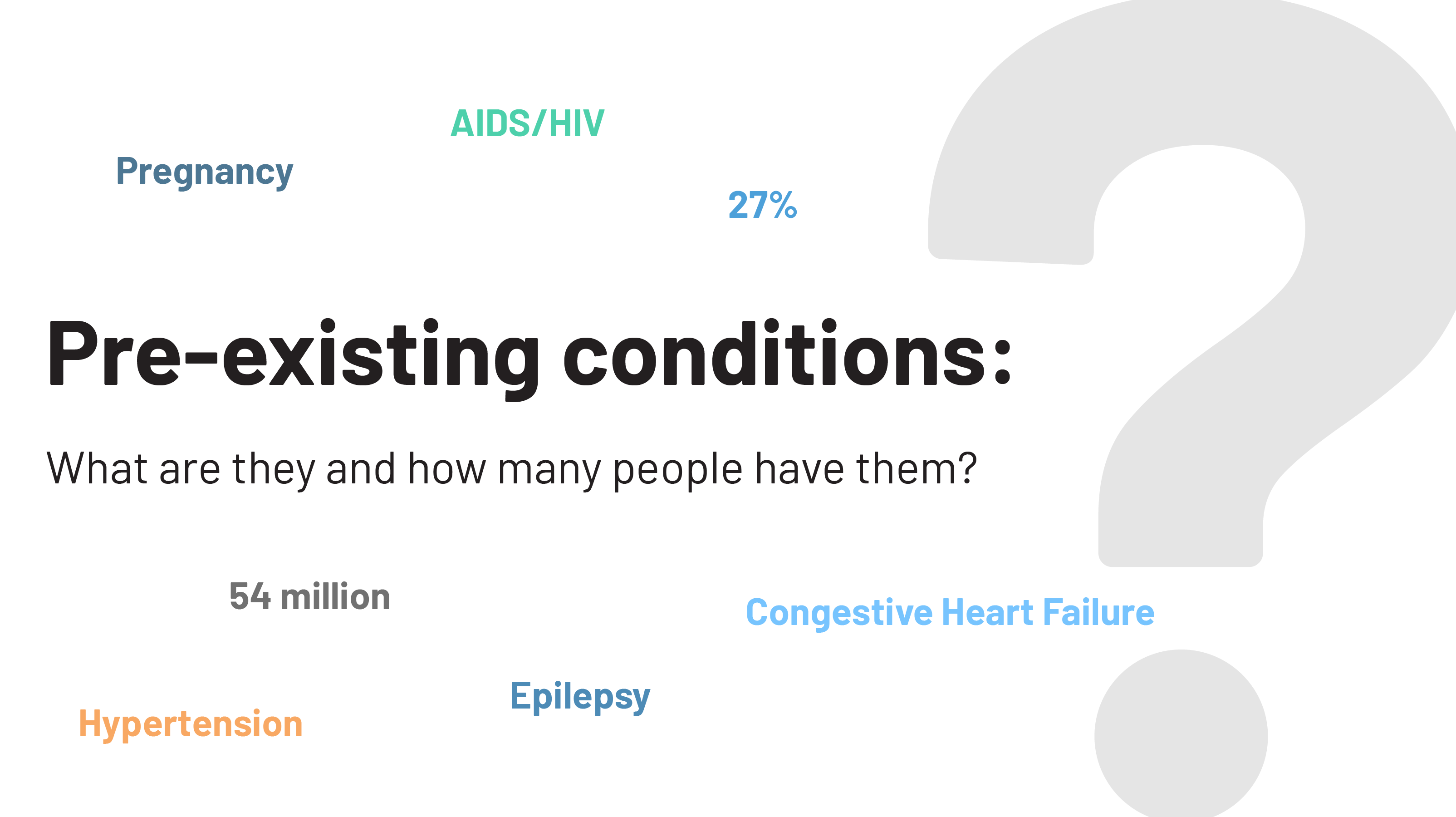

I think it goes without saying that the COVID-19 pandemic has forced all of us to reassess and reevaluate so many aspects of our lives. Of all these considerations, it’s safe to say that paramount of all should be our health. It is not only imperative that you ensure you are properly covered by a competent healthcare plan should you find yourself in the unfortunate situation where you may be struck by the virus, but perhaps even more importantly, you need to understand how it could impact you in the long term.
If you have access to an employer’s group health insurance plan or even a national healthcare plan, then you should be eligible to receive the necessary assistance from your provider should the unthinkable occur. Unfortunately, in the event you contract COVID, you may have to now worry about what your healthcare coverage looks like in the future because a COVID diagnosis may, believe it or not, impact whether you are considered to have a pre-existing condition or not moving forward.

A pre-existing condition is any medical ailment you suffer from prior to receiving coverage from your health insurance company, and your health insurance company will base the spectrum of their coverage (what they will and won’t pay for) based on pre-existing factors.
Put simply, a pre-existing condition is any illness, injury or health condition that you previously suffered from or are currently suffering from. These can range from allergies to chronic pain to cancer to heart disease and everything in between. Not to mention chronic illness, any injury or disease that your insurance provider deems to be “at-risk” for future maladies could also be construed as a pre-existing condition.
This means anything from broken bones to recent surgeries to certain types of hepatitis and beyond. Even certain mental disorders and, believe it or not, even pregnancy could be included in this list.
Keep in mind that this is the definition used by insurance companies. Yes, the health insurance policy they sell us is designed to cover our healthcare costs and medical bills, but at the end of the day they’re goal is to pay out as little as humanly possible, while still maintaining the auspice of fulfilling their duties in servicing your healthcare needs.
If there is any chronic illness or medical condition that the health insurance companies may foresee as being problematic, i.e. causing you to require an increasing degree of medical coverage, the concept of pre-existing conditions allows them to mitigate this by disallowing these conditions from being covered.
Are you currently pregnant? Do you have any neo-natal, pre-natal or OB-GYN complications? Do you have any broken bones? Have you had any follow-up surgeries? Physical therapy of an ongoing nature? A heightened risk of injuries in the future or subsequent additional breaks?
To be fair, an insurer usually only looks back 3 to 5 years for incidents involving broken bones, but if you answered “yes” to any of these questions, you might have a problem on your hands.
Knowing that health insurance companies want as many exclusions in their policies as legally possible, it’s no wonder that experts arespeculating as to whether COVID-19 will count as a pre-existing medical condition for health insurance policies moving forward. Thankfully, new and more effective protocols and vaccines have come about since the inception of the virus.
Unfortunately, there has been a great deal of reports regarding the potential ongoing after-effects of COVID-19. From common medical problems like headaches and fatigue to serious damage to the heart muscle and kidneys. Being that we are still in the early stages of studying the long-term effectsof COVID, we can’t say for sure if these ongoing conditions will only last weeks, or maybe months, or even years. Suffice to say, your insurance company is probably taking safeguards to ensure they won’t be left holding the bill.
As stated before, with employer or national health coverage, you should be insured without problem from any problems that may arise. Of course, it never hurts to take a second look, not only into the scope of the coverage itself, but also the quality of the care that you may be receiving, in the event that something like COVID does impact your life.
Additionally, if you are receiving healthcare through your employer, a secondary, supplemental private insurance plan is something you may want to take into consideration. That’s where investment experts like myself step in. I can help you review and consider the best options at your disposal to guarantee you have no financial concerns when it comes to you, your insurance policy and any complications that may arise from COVID.

Prior to this, he resided in Tokyo, Japan for over 15 years and is currently the CEO of Asia Wealth Group Holdings Ltd, a London, UK Stock Exchange-listed Financial Holdings Company.
Richard Cayne has been involved in wealth management and asset management in Asia for over 25 years and has assisted many High net-worth Japanese families create innovative international tax and wealth management planning solutions. The public company of which he is CEO can be seen at Asia Wealth Group Holdings Ltd or the stock exchange link:
https://www.aquis.eu/aquis-stock-exchange/member?securityidaqse=AWLP